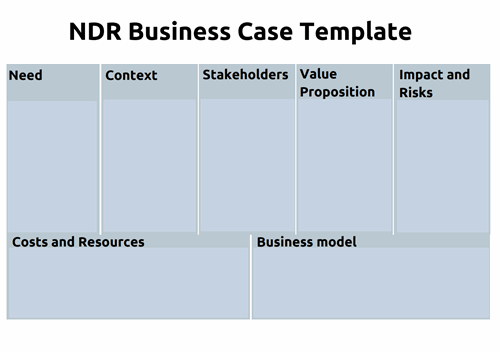
Photo by JESHOOTS.COM on Unsplash
The Nightingale team has carried out design research for a wide range of healthcare projects, informing the design, development and implementation of digital innovation for the NHS and for healthcare startups and scaleups. What this experience has taught us is that having a great idea is only the first step to delivering an innovative solution - without a strong business case, it's unlikely that the idea will become a reality.
Why build a business case?
Building a business case ensures that you have considered what your customer or client needs, rather than focusing entirely on developing your product or service. Ultimately, a business case is a case for change - it describes to your client or customer why a change is needed and details the benefits of that change in a convincing way. Developing a business case ensures that all the key elements that contribute to the success or failure of a particular change have been addressed and the true value to the healthcare system has been explored and evidenced.
For digital innovation, it details why a product or service should be bought and implemented, taking into account all of the factors that could help or hinder success - such as context, stakeholders and cost. If you want to implement digital innovation within the NHS, building a business case is vital - procurement and funding depend on a strong, convincing business case being made.
What does a good business case look like?
A good business case needs to include a detailed and accurate understanding of the need that is being fulfilled, as well as the realities of the people and the processes that make up the particular system you are focusing on. This understanding allows you to clearly demonstrate the benefits that are being delivered to both clinicians and patients, as well as other positive impacts such as improvements in efficiency and cost savings.
Based on our experiences, we’ve developed a business case template and guidebook that allow you to work systematically through all of the key questions that need to be answered in order to build a strong business case and successful product or service. In our recent webinar, we discussed our experiences in healthcare and how you can use the business case template to deliver successful digital innovation in this sector.
Building a business case for healthcare - what to consider
Our business case template can be used in any industry, but when working in healthcare there are some important factors to consider.
Healthcare is a complex, high-risk system
It is vital to have a real, evidence-based understanding of the context, need, impact and risks that surround your digital innovation. A product that is great for community nurses working in primary care may be unsuitable or even dangerous for renal nurses in secondary care - the way in which users engage with a product and how it affects the efficiency and safety of their work needs to be understood in detail. Design research is the best way to gather that information, through techniques such as interviews, observations and user testing.
There may be many stakeholders to consider
Consider whose work is affected or changed by an innovation and who may be impacted by the knock-on effects of that change - technology designed for surgeons may inadvertently increase the workload of nurses, for example. Patients are stakeholders that tend to be forgotten - digital technology can make the lives of clinicians easier, while making it harder for patients to access the care they need.
It’s important to carry out research, not just with the immediate users of a technology, but also with the people they work with and the people they treat and care for. Remember also that the person using the technology may not have the power to buy or fund it - frontline staff may be the target user, but the customer/budget holder may be a manager who needs to understand the benefit and impact of the solution for the organisation as a whole.
There must be a very strong value proposition
In healthcare, even relatively small changes can be difficult or dangerous to implement. Issues such as old hardware or a lack of devices can make it difficult for staff to access and use software. Therefore, a very strong case for change needs to be made, with the value of that change clearly detailed and evidenced. Ensuring that there is strong research and evidence backing up the other areas outlined in the business case template - need, context, stakeholders, impact and risks, costs and resources, business model - will make it possible to accurately pinpoint the value of an innovation for a defined target market and context. It will also make it possible to address any potential issues or risks, reassuring a customer or client that the change will, overall, be beneficial.
The Nightingale team are experts in designing and carrying out robust, practical research that will allow you to confidently tell the story of the effectiveness and value of your product. We'd love to learn more about the project you have in mind for your business case and talk about how design research can support your success.




